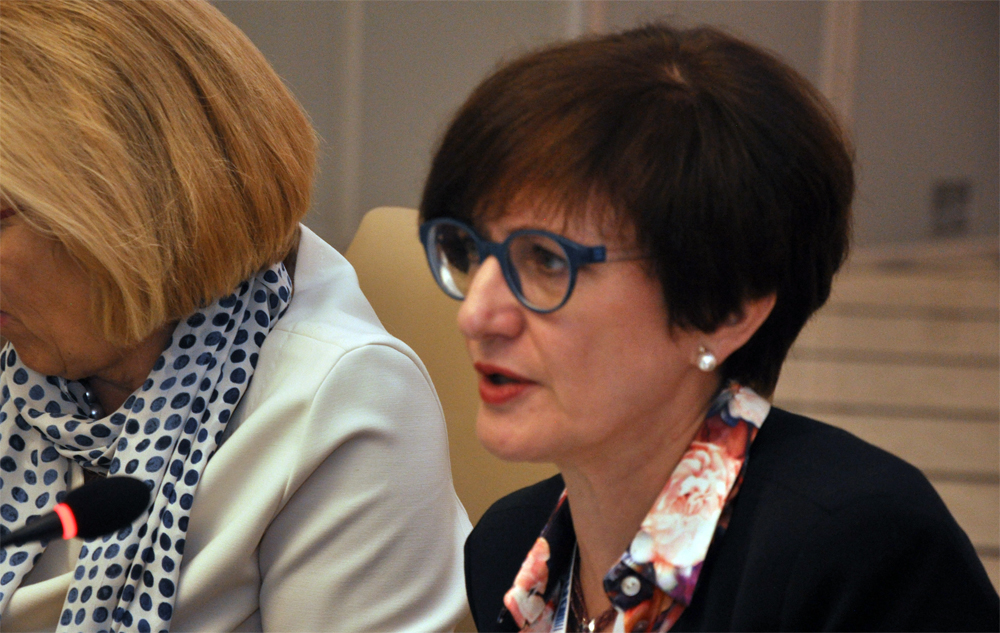Nickel, conflict minerals and FTC Guides top Precious Metals Commission agenda

Karina Ratzlaff , Vice President of the Precious Metals Commission, who chaired the body’s meeting at the 2016 CIBJO Congress .
OCTOBER 28, 2016
The Precious Metals Commission featured a discussion on changes to regulations regarding use of nickel, particularly the EN1811:2011 standard which had caused concerns to the trade. CIBJO has lobbied for changes to the 2011 standard which came into force in January 2016. The Assay Office in Birmingham represented CIBJO in two international conferences on the issue over the past year since the last CIBJO Congress.
These included a Nickel Institute Conference in Brussels in June 2015 which proposed a clearer definition of direct and prolonged contact with the skin. There was a North American workshop on NACD (Nickel Allergic Contact Dermatitis) which is a growing problem in North America where there is no enforceable nick regulation, the commission members were told.
Moving on to the issue of conflict materials and the effect of the U.S. Dodd Frank Act, controlling sources of tungsten, gold, tin and tantalum to prevent illegitimate sources in the Congo, the meeting heard that the European Union (EU) is still in the process of discussing similar legislation.
A voluntary regime was proposed by the EU, but there is currently an impasse because members of the European Parliament called for radical changes last year, but the Dutch Presidency of the EU wants to avoid the huge administrative burden that it would cause to 800,000 companies.
No legislation has been proposed yet and the outcome is still unclear, Commission Vice-President Karina Ratzlaff explained. The new regulation will apply to tungsten, gold, tin and tantalum, and the conflict and high-risk areas would not be limited just to Congo, she said.
In addition, due diligence required would need to comply with Organisation for Economic Cooperation and Development (OECD) standards. Smelters, refiners and large importers would be required to conduct due diligence. There would be no direct obligations for manufacturers, but they will be encouraged to report who their suppliers are.
